Professor Edward Vickers Visited ICI: Rethinking Schooling Based on Sustainable Development Goal 4.7
2019-10-07
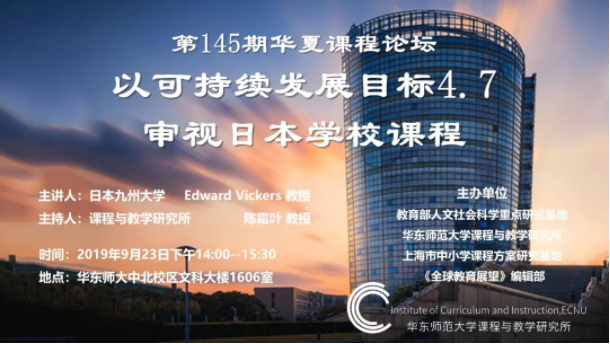

On the afternoon of September 23rd, Edward Vickers, a professor of comparative education at Kyushu University in Japan, attended the 145th Huaxia Curriculum Forum of ICI and delivered an academic report entitled Rethinking Schooling for the 21st Century: The State of Education for Peace, Sustainable Development and Global Citizenship in Asia.

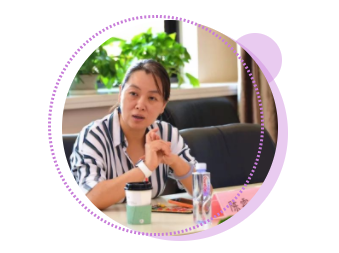
Professor Chen Shuangye
Deputy Director of ICI, East China Normal University

The forum was hosted by Professor Chan Shuangye, Deputy Director of ICI. Mark Bray, Distinguished Chair Professor of the Department of Education, Professor Shen Xiaomin of the School of Teacher Education, Professor Zhang Wei of ICI, Dr. Fung Siyuan of the University of Hong Kong, and some students of ICI participated in the forum.

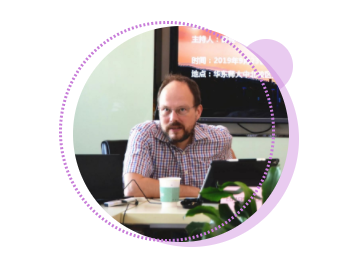
Professor Edward Vickers
Kyushu University, Japan

In the report, Professor Vickers analyzed the educational philosophy and theoretical thinking of SDG4.7 (Sustainable Development Goal 4.7), combined with a series of research materials, he compared the relevant contents of sustainable development in the curriculum of Asian countries, and revealed the challenges and difficulties of realizing SDG4.7 in school curriculum in Asia, as well as its political and social causes.

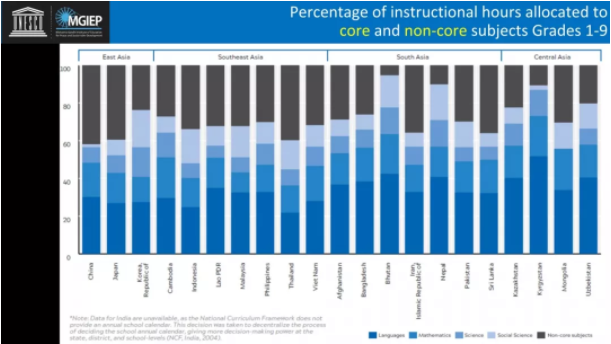
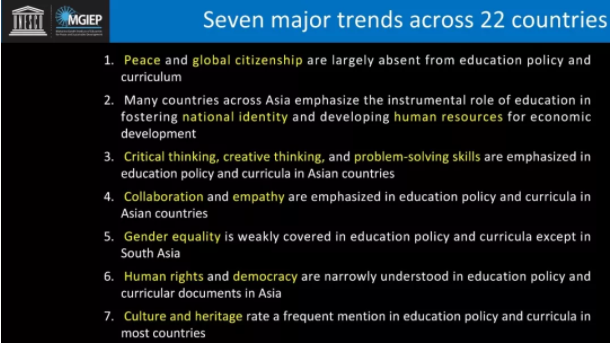
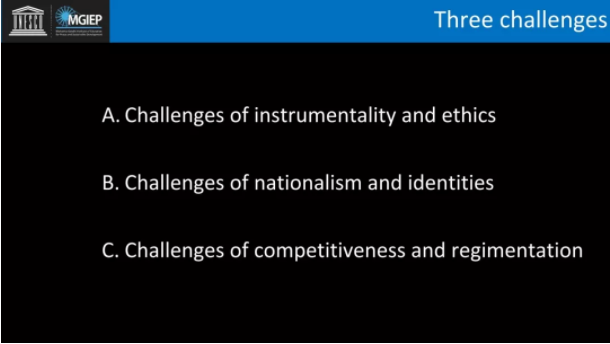


Professor Vickers first shared the content of SDG4.7 and pointed out that it is an arduous task to fully implement SDG4.7. It is not only because of the controversial definition of its concept, but also because it may conflict with some of the objectives of the national curriculum. Subsequently, he used detailed data and charts to present the relevant concepts reflected in the national education policies and curricula of 22 countries in Asia.
On this basis, Professor Vickers enumerates the main developments of Japan's education policy in recent years, as well as the national image in textbooks, “future-oriented perspective” and the history of World War II and post-war, and further analyzes the deep meaning behind the narrative of these textbooks.
Finally, he proposes three challenges of implementing SDG4.7 in the school curriculum: utilitarianism and moral challenges, nationalism and identity challenges, competition and regulatory challenges. Taking Japan as an example, he pointed out that the excessive emphasis on “hard science” in public policy has intensified the marginalization of society and the humanities; at the same time, the media are increasingly serving right-wing political forces, scholars who conduct critical research on “sensitive” issues are also under political pressure, and the voices of such scholars no longer appear in textbooks, especially those related to Japan’s wartime history.

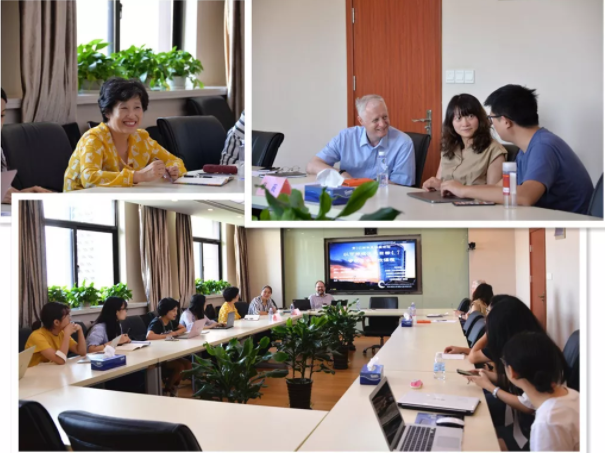

After the end of the report, Professor Vickers had a small-scale and in-depth interaction with teachers and students, focusing on the relationship between the change of China’s image in Japanese textbooks and geopolitics, the embodiment of the concept of environmental protection in Japanese education and the practice of social and environmental protection in Japan, as well as the limitations of the empirical data and research methods based in the report.